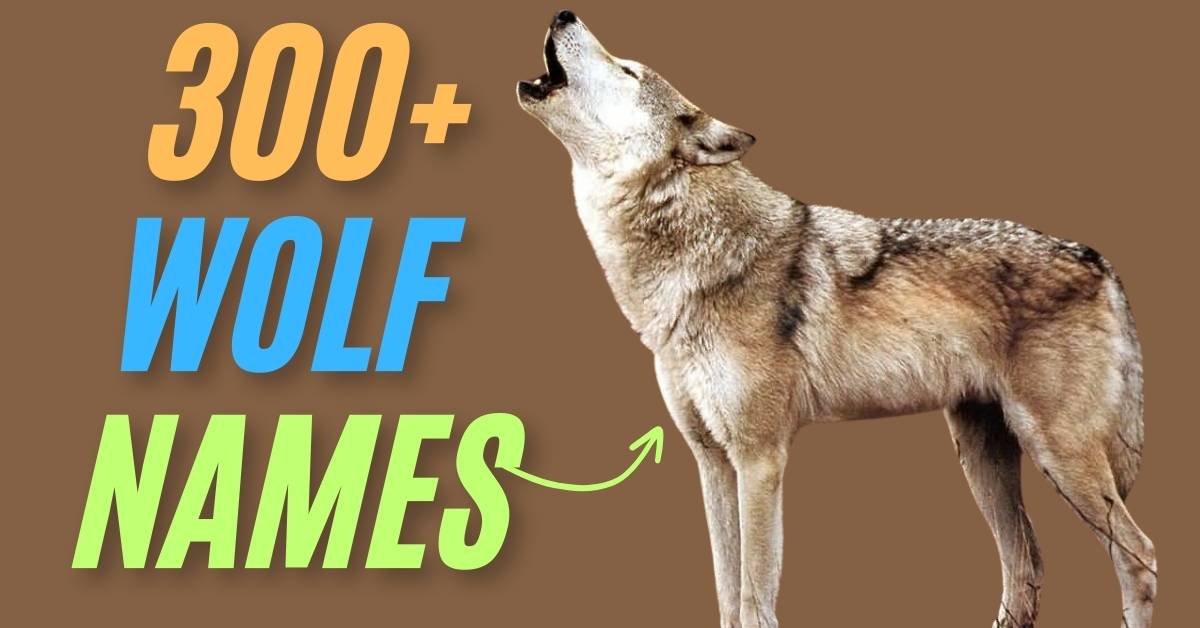Wolf names are unique identifiers that capture the strength, power, and mystery of wolves. These names are often inspired by their physical traits, behaviors, or symbolism. They are perfect for naming pets, characters, or even for use in stories and games.
If you’re looking for a name that carries meaning and reflects the wild nature of wolves, you’ve come to the right place. Wolves symbolize freedom, loyalty, and bravery, and their names often represent these powerful traits. Let’s Explore a list of names that truly embody the spirit of the wolf.
“300+ Badass Wolf Names With Meanings To Inspire You” offers a wide range of strong and unique names. Whether you need a name for a pet or a fictional character, this list will help you find the perfect one. Each name is carefully chosen to reflect the power and mystique of wolves.
Best Wolf Names with Meaning
Akikta – A Native American name meaning “fighter” or “one who is victorious.”
Amaya – Japanese for “night rain,” symbolizing mystery and beauty.
Arctic – Named after the cold, snowy regions where wolves roam, symbolizing resilience.
Ashka – A Native American name meaning “a wolf,” representing strength and intelligence.
Azar – Persian for “fire,” symbolizing passion and energy.
Blaze – Meaning a fierce flame or bright light, perfect for a bold wolf.
Boru – An Irish name meaning “wolf,” symbolizing loyalty and courage.
Caden – A Gaelic name meaning “battle” or “war,” fitting for a strong wolf.
Chaska – A Native American name meaning “first born son,” often associated with leadership.
Dawn – Representing the break of day and the quiet power of a wolf at the start of a new journey.
Echo – A name that represents the haunting, powerful call of wolves echoing through the wild.
Fenrir – In Norse mythology, Fenrir is the giant wolf who symbolizes power and destiny.
Geri – A Norse name meaning “the old one,” referring to one of Odin’s wolves, symbolizing wisdom.
Howl – A tribute to the distinctive sound of wolves communicating with each other.
Indra – In Hindu mythology, Indra is the god of storms and battles, representing strength and leadership.
Koda – A Native American name meaning “friend,” symbolizing loyalty and companionship.
Luna – Latin for “moon,” symbolizing mystery and the wolf’s connection to the lunar cycle.
Maya – Derived from Native American origins, meaning “illusion” or “dream,” representing the wolf’s mysterious nature.
Odin – Named after the Norse god, often associated with wolves as their master.
Rogue – Perfect for a wolf with an independent spirit, symbolizing freedom and boldness.
Shadow – A name representing the stealthy, quiet nature of a wolf moving through the forest.
Sable – Meaning “black” or “dark,” ideal for a mysterious or dark-coated wolf.
Sierra – Spanish for “mountain range,” representing the wolf’s connection to the wilderness.
Talon – Symbolizing strength and agility, the sharp claws of a wolf.
Zira – A Swahili name meaning “life,” symbolizing vitality and the energy of a wolf.
Funny Wolf Names
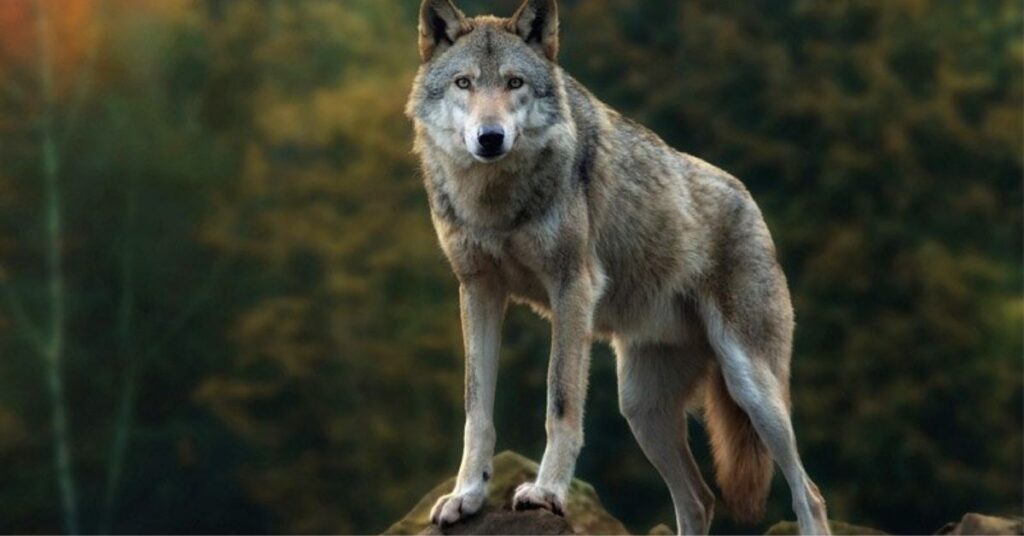
- Bark Twain
- Sir Howls-a-Lot
- Fuzz Aldrin
- Wolfram
- Chewbacca
- Barkley
- Wolfgang Puck
- Ruff the Magic Dragon
- Howl-io Iglesias
- Paws
- Snoop Wolf
- Woofy Goldberg
- Snarls Barkley
- Hairy Pawter
- Wufus
- Lady Howl
- Howlin’ Wolf
- Loup de Loops
- Poochie
- Growl Vader
- Furrball
- Wolfie McWolfface
- Howlbot
- Whiskers
- Pawsley
Recommended Blog: 350+ Unique & Cool Capybara Names with Meanings
Cute Names for Wolf
- Snuggles
- Luna Bear
- Flurry
- Pippin
- Snowy
- Willow
- Mochi
- Fuzzball
- Muffin
- Cuddlebug
- Peanut
- Sparkle
- Niblet
- Tinkerbell
- Twinkle
- Bubbles
- Poppy
- Biscuit
- Waffles
- Doodle
- Popcorn
- Buttercup
- Daffodil
- Honey
- Pudding
Mythical Wolf Names
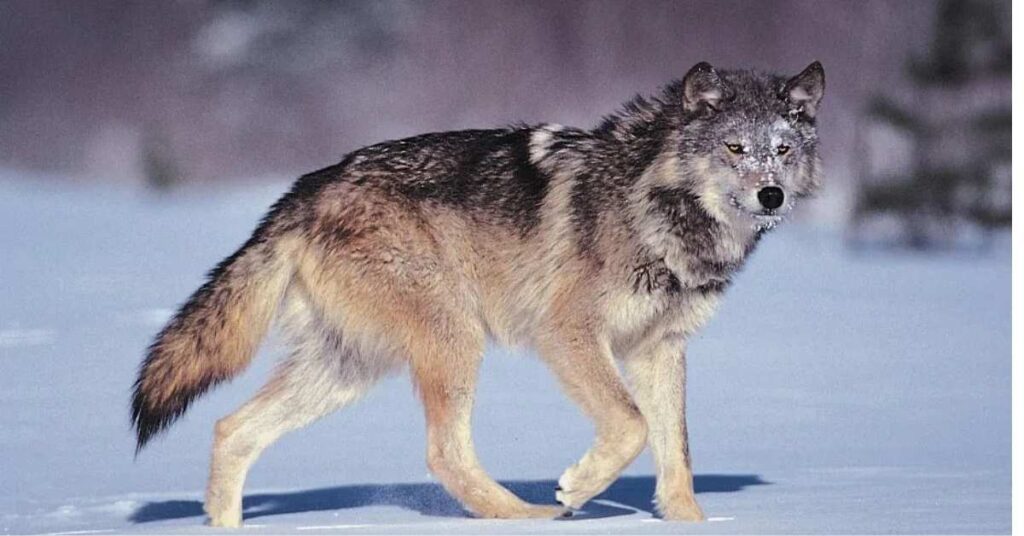
- Fenris
- Sköll
- Hati
- Lupa
- Amaterasu
- Cerberus
- Jörmungandr
- Lupus
- Aelfric
- Níðhöggr
- Yuki-onna
- Geri
- Freki
- Chaneques
- Nox
- Víðarr
- Warg
- Rakshasa
- Sigrún
- Tjalfi
- Zira
- Ragnarok
- Morozko
- Draugr
- Ulric
Catchy Black Wolf Names
- Shadowfax
- Obsidian
- Nightshade
- Onyx
- Midnight
- Eclipse
- Phantom
- Storm
- Ashen
- Raven
- Coal
- Sable
- Blackjack
- Noir
- Thunder
- Stealth
- Vesper
- Carbon
- Darkstar
- Sinister
- Twilight
- Jet
- Smoke
- Charcoal
- Cinder
Cool Names for Wolf
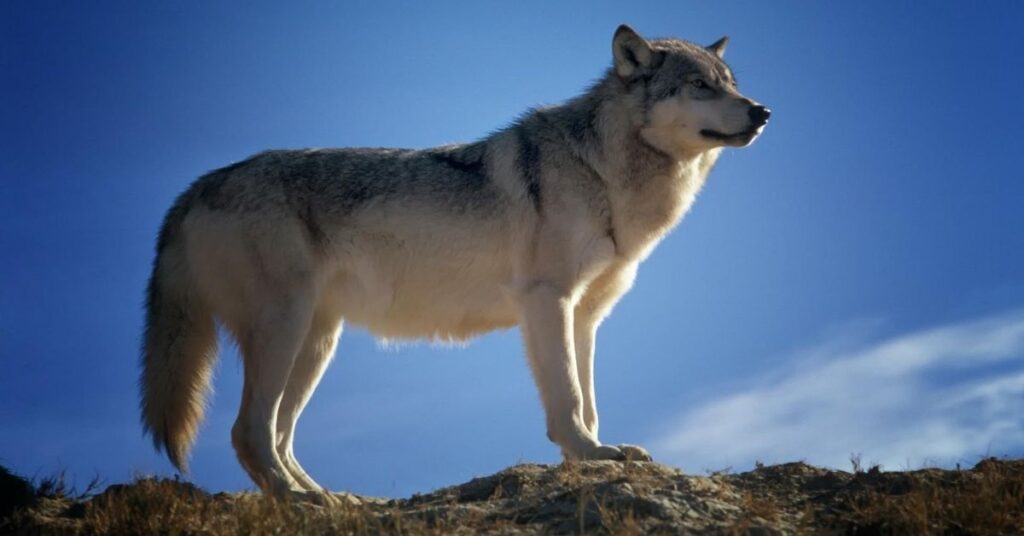
- Thor
- Riptide
- Maverick
- Ghost
- Blaze
- Titan
- Arrow
- Viper
- Phantom
- Diesel
- Zane
- Kodiak
- Raider
- Ravenclaw
- Rebel
- Fang
- Hunter
- Odin
- Stormbreaker
- Draco
- Zephyr
- Scout
- Jinx
- Tiberius
- Shadowhunter
Badass Names for Wolf
- Ragnar
- Thorin
- Vortex
- Steel
- Grim
- Savage
- Venom
- Hades
- Vandal
- Razor
- Phantom
- Loki
- Reaper
- Warlock
- Striker
- Valkyr
- Bane
- Havoc
- Onyx
- Torque
- Slayer
- Hunter
- Titan
- Cyclone
- Draco
Trendy White Wolf Names
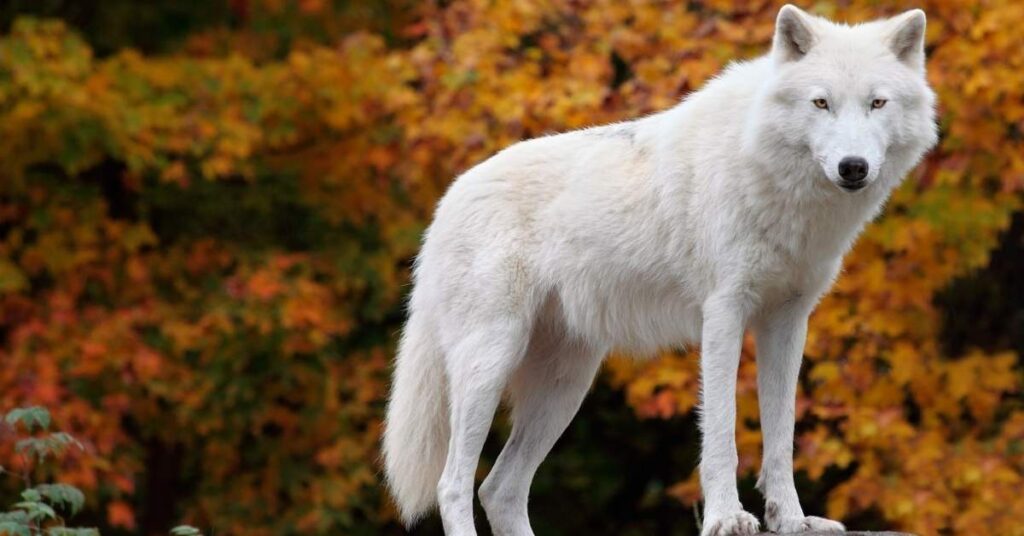
- Frost
- Aspen
- Nova
- Glacier
- Ghost
- Winter
- Pearl
- Ivory
- Lumi
- Snowfall
- Crystal
- Polar
- Shiver
- Birch
- Ice
- Blizzard
- Halo
- Mist
- Blizzard
- Solstice
- Seraph
- Yukon
- Snowflake
- Arctic
- Cotton
Wolf Female Names
- Arya
- Luna
- Willow
- Ember
- Storm
- Nyx
- Freya
- Maya
- Echo
- Nova
- Kira
- Raven
- Zira
- Astra
- Sable
- Tundra
- Veda
- Misty
- Fiera
- Cleo
- Selene
- Valkyrie
- Juno
- Nala
- Lyra
Male Wolf Names
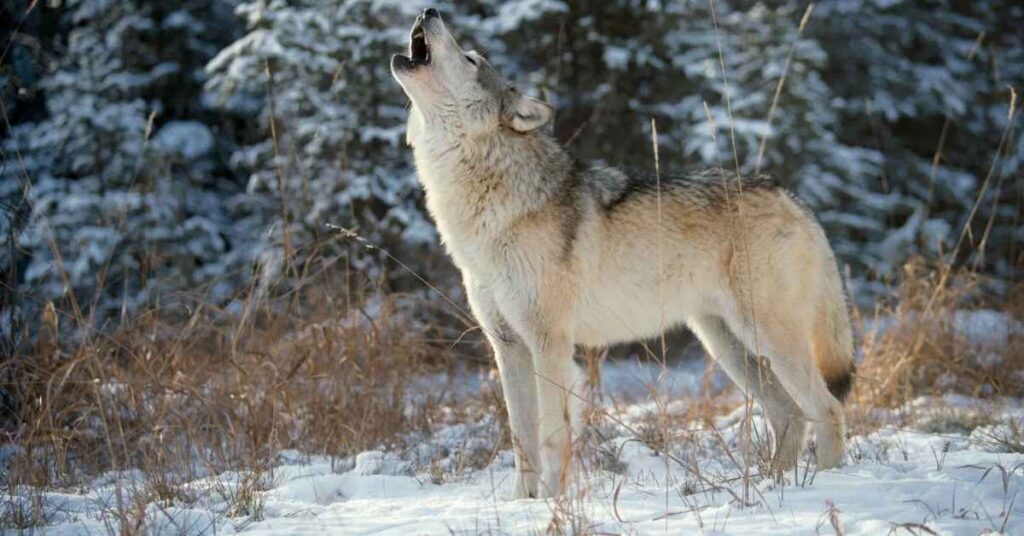
- Thor
- Odin
- Koda
- Apollo
- Hunter
- Zephyr
- Ash
- Titan
- Maximus
- Orion
- Diesel
- Rocco
- Rocky
- Jax
- Ace
- Diesel
- Ghost
- Timber
- Dash
- Bandit
- Flint
- Draco
- Ranger
- Blaze
- Scout
Famous Wolf Names
White Fang – From the novel by Jack London.
Fenrir – The monstrous wolf in Norse mythology.
Akela – The wolf leader in Rudyard Kipling’s The Jungle Book.
Lupa – The she-wolf in Roman mythology who nursed Romulus and Remus.
Togo – Famous sled dog from the 1925 serum run to Nome.
Balto – Another famous sled dog from the 1925 serum run.
Wolverine – A ferocious character from Marvel comics.
Grey Ghost – A legendary wolf in Native American folklore.
Shere Khan – While not a wolf, the tiger character from The Jungle Book is often considered a foil to Akela.
Old Yeller – Famous dog in the novel by Fred Gipson.
Hati – In Norse mythology, Hati is the wolf that chases the moon.
Mowgli – The human raised by wolves in The Jungle Book.
Storm – A name from the X-Men universe, though not a wolf, Storm is often associated with wild, untamed forces.
Rogue – A member of the X-Men, associated with strength and independence.
Cenizas – A wolf featured in The Call of the Wild by Jack London.
Lupin – A name derived from the Latin word for wolf, also a character in Harry Potter.
Wolfie – Often used for popular cartoon wolves or characters like in Looney Tunes.
Ragnar – From the Viking legends, symbolizing strength and battle.
Ghost – A famous direwolf from Game of Thrones.
Nymeria – Arya Stark’s direwolf in Game of Thrones.
Sirius – The “Dog Star,” often associated with wolves in mythology.
Alfa – The leader wolf in packs, used as a symbol of leadership and power.
Kouga – A wolf demon from the anime Inuyasha.
Whisper – A character in the Warriors series by Erin Hunter.
Shadowfax – While a horse in Lord of the Rings, it is often revered in a similar way to a majestic wolf.
Names that Mean Wolf in Different Languages
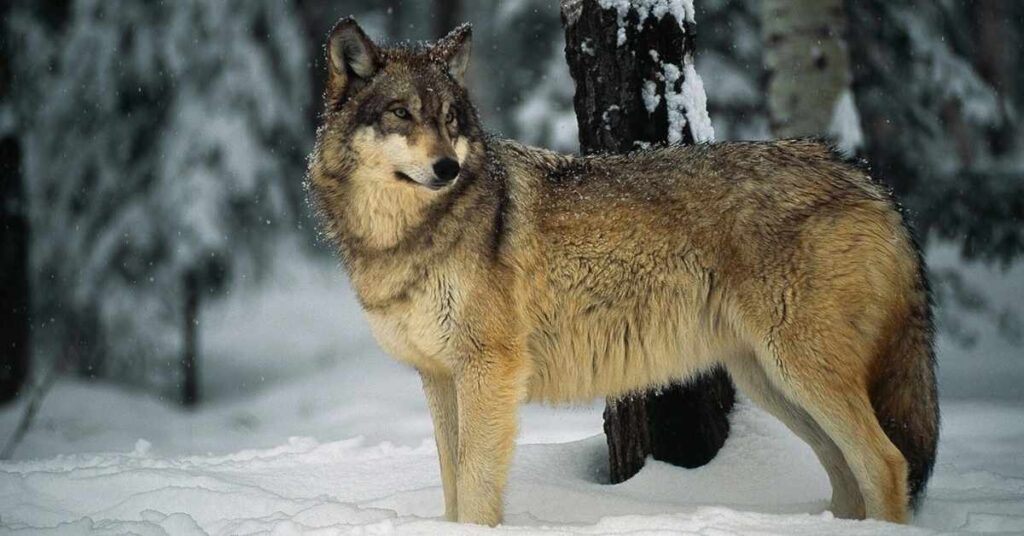
Lupo (Italian)
Lykos (Greek)
Vuk (Serbian)
Bhuva (Hindi)
Ulfr (Old Norse)
Wilf (English)
Lupa (Latin)
Cú (Irish)
Mahlek (Arabic)
Wulf (Old English)
Raoul (French, derived from a name meaning “wolf counsel”)
Akela (Hindi, also in The Jungle Book)
Hwolf (Germanic)
Varg (Swedish/Norwegian)
Zorro (Spanish, meaning “fox” but closely related to wolves in folklore)
Geri (Old Norse, one of Odin’s wolves)
Fenrir (Norse mythology)
Siyu (Native American, meaning “little wolf” in some tribes)
Lupus (Latin)
Kuno (German, derived from “bold” and “brave,” associated with wolves)
Kleon (Greek, meaning “glory” but historically connected to wolves)
Wolfram (German, meaning “wolf raven”)
Hati (Norse mythology, the wolf chasing the moon)
Zorba (Greek, meaning “wolf-like”)
Lupita (Spanish, a diminutive form of “Lupa,” meaning wolf)
Also Read This Blog: 280+ Cool Crab Names With Meaning
How to Come Up with a Good Name for a Wolf?
Coming up with a good name for a wolf involves a blend of creativity, meaning, and inspiration. Here are some tips to help you choose the perfect name:
1. Consider the Wolf’s Characteristics
- Appearance: Think about the wolf’s color, size, and features. A dark, sleek wolf might be named something like “Shadow” or “Midnight,” while a white wolf might be called “Snow” or “Luna.”
- Personality: If the wolf is strong and fearless, you might choose a name like “Titan” or “Rex.” If it’s calm and wise, something like “Sage” or “Echo” might work.
2. Use Mythology or Legends
Wolves have a strong presence in mythology and folklore. Consider names from:
- Greek or Roman mythology (e.g., “Lupa” or “Fenrir”)
- Norse mythology (e.g., “Sköll” or “Hati”)
- Native American legends (e.g., “Akikta” for “fighter” or “Waya” for “wolf”)
3. Incorporate Natural Elements
Wolves are closely connected to nature, so names inspired by the outdoors can work well:
- Names inspired by weather (“Storm,” “Blizzard,” “Thunder”)
- Forests or mountains (“Pine,” “Cedar,” “Kodiak”)
- Moon-related names (“Luna,” “Moonlight,” “Solstice”)
4. Consider Unique Sounds or Letter Combinations
Choose names that flow well when spoken. Names with strong consonants or syllables like “R” or “W” often work for wolves. For example:
- Raven
- Wolverine
- Rogue
5. Keep It Short and Memorable
Wolves often respond well to short, sharp names. Aim for one or two syllables that are easy to call out. Examples:
- Max
- Ash
- Fang
6. Think About Cultural Influence
You can draw inspiration from different cultures and languages:
- Spanish: “Lobo” (meaning “wolf”)
- Scandinavian: “Ulfr” (meaning “wolf” in Old Norse)
- Native American: “Waya” (Cherokee for “wolf”)
7. Reflect on Personal Preferences
Choose a name that has significance to you personally. If you’re naming a pet or a fictional character, think about traits, stories, or memories that are important to you.
8. Experiment with Names Based on Behavior
If you want to go for humor or uniqueness, choose a name based on a wolf’s actions or famous wolf traits. Names like:
- Howler
- Chaser
- Tracker
9. Use Names from Literature and Movies
Wolves are prominent in books and films, and names from these sources can be cool and memorable:
- Ghost (from Game of Thrones)
- White Fang (from Jack London’s novel)
- Akela (from The Jungle Book)
10. Make it Personal
You can also combine personal interests, favorite animals, or a meaning you like with the theme of wolves. The possibilities are endless!
Interesting Facts About Wolves
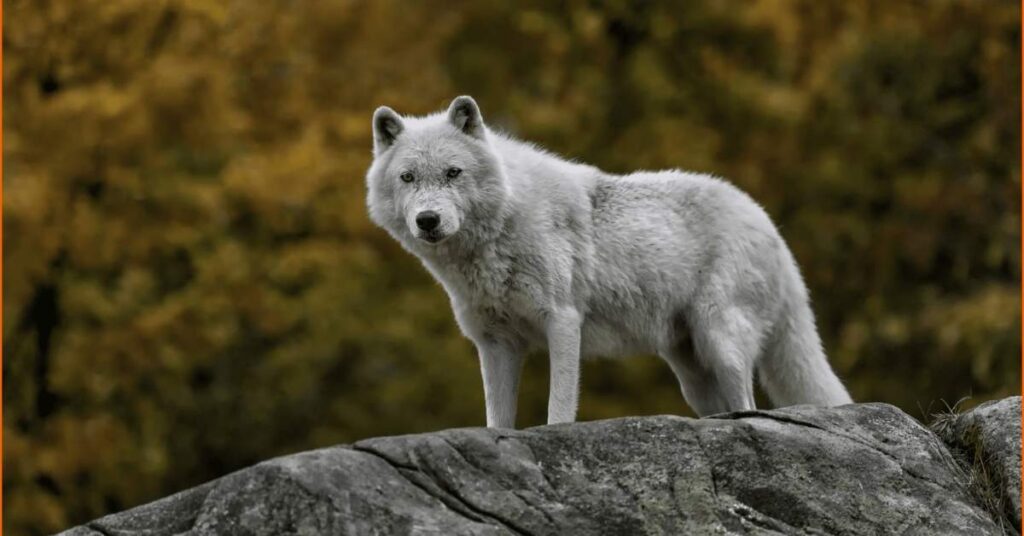
1. Wolves are Highly Social Animals
- Wolves live in packs that usually consist of 4 to 8 members, although packs can be larger or smaller. These packs are typically made up of a family unit, with a dominant breeding pair at the top, often referred to as the alpha pair.
- They cooperate for hunting, raising pups, and defending their territory.
2. Wolves Communicate Using Howls, Growls, and Body Language
- Howling is one of the most iconic ways wolves communicate. It’s used to assemble the pack, mark territory, or warn other wolves of danger. Each wolf’s howl is unique, helping pack members identify each other over long distances.
- They also use body language, ear positioning, tail movement, and facial expressions to communicate.
3. Wolves Are Excellent Hunters
- Wolves are carnivores and typically hunt in packs to bring down larger prey like deer, elk, and bison. They rely on strategy, endurance, and teamwork during hunts.
- Unlike big cats, which rely on stealth and speed for short bursts of energy, wolves use their stamina to chase prey over long distances.
4. Wolves Have Incredible Endurance
- Wolves can run at speeds of up to 35 miles per hour for short distances. They also have the ability to travel 20 to 30 miles a day while hunting or patrolling their territory.
- Their endurance allows them to chase prey for miles, sometimes exhausting it before the final chase.
5. Wolves Have a Keen Sense of Smell and Hearing
- Wolves’ sense of smell is 100 times more powerful than humans. This allows them to track prey over long distances or detect danger.
- Their hearing is also highly developed, allowing them to hear high-frequency sounds, including the movement of prey.
6. Wolves are Found on Several Continents
- Wolves originally roamed much of the world, but due to habitat loss and human persecution, their range has been reduced. Today, they are found in North America, Europe, and parts of Asia.
- In North America, wolves mainly live in the western United States, parts of Canada, and Alaska.
7. Wolves Play a Critical Role in Ecosystems
- Wolves are keystone predators, meaning they have a profound impact on the balance of ecosystems. Their hunting behavior helps control the populations of herbivores, which in turn affects the plant life and the entire food chain.
- In places where wolves have been reintroduced, such as Yellowstone National Park, their presence has led to changes in the behavior of prey animals, such as elk, and has even helped vegetation to regenerate.
8. Wolves Have a Complex Mating System
- The alpha pair is typically the only pair that mates in a pack, and they usually raise a litter of pups together.
- Wolves mate once a year, in winter, and the pups are usually born in early spring. The pack works together to care for and protect the pups, and other members of the pack often help in raising the young.
9. Wolves Have a Rich Mythological and Cultural Significance
- Wolves have been featured prominently in myths, stories, and folklore throughout human history. In many cultures, wolves are symbols of strength, courage, and freedom.
- In Norse mythology, Fenrir is a giant wolf that is prophesied to bring about the end of the world during Ragnarok. In Native American cultures, wolves are often seen as symbols of loyalty, bravery, and the spirit of the wild.
10. Wolves Have an Amazing Memory
- Wolves are known to have an excellent spatial memory, which helps them remember the locations of hunting grounds, pack territories, and safe places to rest.
- They can also recognize individual pack members, distinguish different sounds in their environment, and remember certain patterns in their territory.
Conclusion
Wolves are amazing creatures with strong social bonds and impressive survival skills. They work together in packs to hunt and protect each other, showing how teamwork and communication are key to their success. Their role in nature is also important, helping to balance ecosystems and control prey populations.
These fascinating animals have been part of human culture and mythology for centuries, symbolizing strength and freedom. Despite facing threats, wolves continue to capture our imagination with their intelligence, adaptability, and resilience. Their presence reminds us of the wild, untamed beauty of nature.

